August 28 stands as one of history’s most eventful days, witnessing the rise and fall of empires, groundbreaking discoveries, and moments that shaped our modern world across centuries of human achievement.

Politics and Government Events on August 28
1963 – March on Washington for Jobs and Freedom
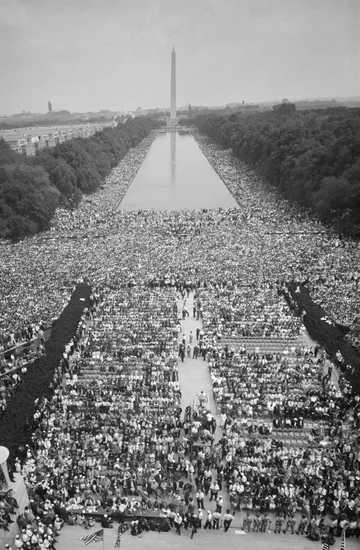
Rev. Dr. Martin Luther King Jr. delivered his iconic “I Have a Dream” speech to over 250,000 demonstrators gathered at the Lincoln Memorial. The peaceful march marked the largest political rally for human rights in United States history.
King’s powerful words resonated across the nation, demanding jobs and freedom for African Americans. The historic gathering accelerated the passage of landmark civil rights legislation and transformed the American political landscape.
1955 – Emmett Till Lynched in Mississippi

Fourteen-year-old Emmett Till was brutally murdered in Mississippi after allegedly whistling at a white woman. His death became a catalyst for the emerging civil rights movement across the American South.
Till’s mother insisted on an open-casket funeral, exposing the horrific violence to the world. The tragic event mobilized civil rights activists and demonstrated the urgent need for federal intervention in racial violence.
1957 – Strom Thurmond’s Record-Breaking Filibuster
Senator Strom Thurmond began his historic 24-hour and 18-minute filibuster to prevent Senate voting on the Civil Rights Act of 1957. His marathon speech remains the longest individual filibuster in United States Senate history.
Thurmond’s effort ultimately failed as the legislation passed despite his opposition. The dramatic political theater highlighted the fierce resistance to civil rights reform in the late 1950s.
1936 – Nazi Mass Arrests of Jehovah’s Witnesses
Nazi Germany launched systematic arrests of Jehovah’s Witnesses, targeting them for their refusal to renounce their faith. Thousands were subsequently imprisoned in concentration camps throughout the Third Reich.
The religious persecution demonstrated the Nazi regime’s intolerance for any group refusing to conform to state ideology. Jehovah’s Witnesses wore purple triangles in camps, becoming symbols of religious resistance under totalitarian rule.
1990 – Iraq Declares Kuwait Its Province
Iraq officially annexed Kuwait as its 19th province, escalating the Persian Gulf crisis. Saddam Hussein’s regime installed a puppet government and began systematic looting of Kuwaiti resources.
The international community condemned the annexation, leading to comprehensive economic sanctions against Iraq. This aggressive move set the stage for the Gulf War and coalition military intervention.
1946 – North Korean Workers’ Party Founded
The Workers’ Party of North Korea was established at a congress in Pyongyang, becoming the predecessor to the ruling Workers’ Party of Korea. This political organization would dominate North Korean governance for decades.
The party’s founding marked a crucial step in establishing communist control over the Korean peninsula’s northern region. Its ideology and structure would shape North Korea’s isolationist policies and authoritarian governance.
1973 – Stockholm Syndrome Emerges

The Norrmalmstorg bank robbery ended when Stockholm police secured the surrender of hostage-takers Jan-Erik Olsson and Clark Olofsson. The hostages’ sympathetic behavior toward their captors created a new psychological phenomenon.
Researchers later coined the term “Stockholm syndrome” to describe this psychological response to trauma. The incident fundamentally changed understanding of hostage psychology and crisis negotiation techniques.
Military and Naval History on August 28
1914 – Battle of Heligoland Bight
The Royal Navy achieved a decisive victory over the German fleet in the first major naval engagement of World War I. British forces sank three German cruisers and one destroyer while suffering minimal casualties.
The battle demonstrated British naval superiority and boosted morale during the war’s early months. Germany’s High Seas Fleet retreated to safer waters, avoiding major confrontations for the remainder of 1914.
1916 – Germany Declares War on Romania
Germany formally declared war on Romania following the country’s entry into World War I on the Allied side. Romanian forces had already begun military operations against Austria-Hungary in Transylvania.
The declaration expanded the Eastern Front and forced Germany to divert resources from other theaters. Romania’s oil fields became a strategic target for Central Powers military planners.
1944 – Liberation of Marseille and Toulon
Allied forces successfully liberated the major French ports of Marseille and Toulon from German occupation. The victories provided crucial Mediterranean supply routes for the continuing Allied advance through France.
French resistance fighters played vital roles in the liberation, coordinating with Allied forces to minimize civilian casualties. The port cities’ capture accelerated the German retreat from southern France.
1917 – Red Army Defeats Ukrainian Insurgents
The Red Army dissolved the Makhnovshchina movement after driving the Revolutionary Insurgent Army from Ukraine. This victory eliminated a significant anarchist threat to Bolshevik control in the region.
The defeat marked the end of Nestor Makhno’s peasant republic and consolidated Soviet power in Ukraine. Many insurgents fled to neighboring countries or went underground to continue resistance activities.
1943 – Denmark Under Martial Law
German authorities demanded Danish officials crack down on resistance activities, leading to martial law declaration the following day. The occupation became increasingly harsh as Danish resistance intensified.
The German ultimatum ended Denmark’s relatively cooperative relationship with occupying forces. Resistance activities increased dramatically, forcing Germany to commit additional troops to maintain control.
Science and Discovery Milestones on August 28
1993 – Galileo Probe Discovers First Asteroid Moon
NASA’s Galileo spacecraft performed a historic flyby of asteroid 243 Ida, later revealing the first known asteroid moon in captured images. Scientists named the tiny satellite Dactyl after the mythological creatures.
The discovery revolutionized understanding of asteroid formation and evolution in the solar system. Dactyl’s existence suggested that asteroid collisions were more complex than previously theorized by astronomers.
1999 – Mir Space Station Mission Concludes
The Russian Soyuz TM-29 mission reached completion, ending nearly a decade of continuous human occupation aboard the Mir space station. The aging facility approached the end of its operational life.
Mir’s continuous occupation provided invaluable data on long-term space habitation effects on human physiology. The station’s legacy contributed essential knowledge for future International Space Station operations.
2016 – India Tests Scramjet Engine
The Indian Space Research Organisation successfully conducted its first experimental scramjet engine test from Satish Dhawan Space Centre. The mission advanced India’s air-breathing propulsion system development significantly.
The breakthrough technology promises more efficient space launch systems and hypersonic flight capabilities. India joined an exclusive group of nations developing advanced scramjet propulsion technologies.
2009 – Space Shuttle Discovery Launches
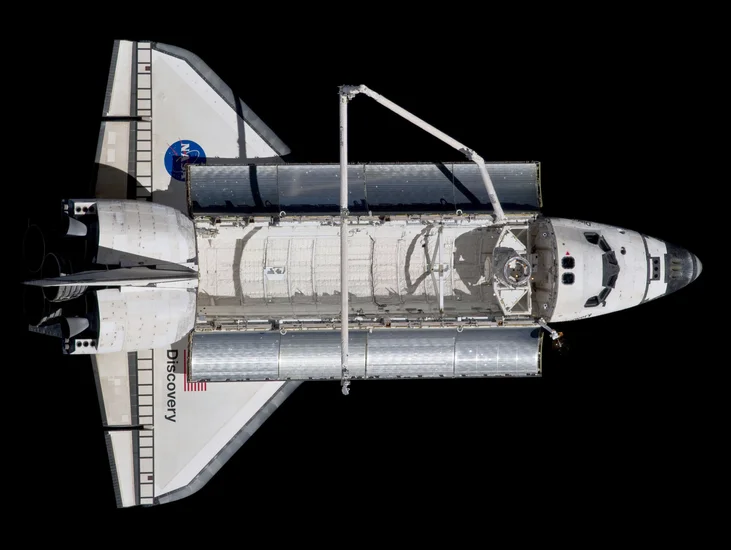
NASA’s Space Shuttle Discovery launched on mission STS-128, delivering crucial supplies and equipment to the International Space Station. The mission transported the Multi-Purpose Logistics Module and various scientific experiments.
Discovery’s crew conducted multiple spacewalks and complex robotic operations during their two-week mission. The successful flight continued America’s commitment to International Space Station operations and scientific research.
Cultural and Arts Events on August 28
1969 – Jack Black Born

American actor and comedian Jack Black was born in Santa Monica, California. His energetic performances and musical talents would later make him a beloved figure in comedy and entertainment.
Black’s unique blend of physical comedy and rock music created a distinctive entertainment style. His roles in films like “School of Rock” and “Nacho Libre” showcased his versatility as a performer.
1969 – Jason Priestley Born
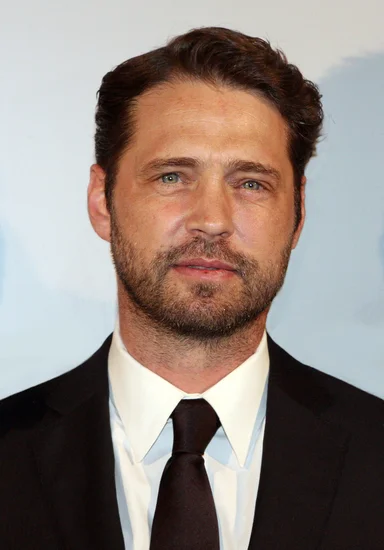
Canadian actor Jason Priestley was born in North Vancouver, British Columbia. His television career would reach global prominence through his iconic role in the series “Beverly Hills, 90210.”
Priestley’s portrayal of Brandon Walsh made him a teenage heartthrob throughout the 1990s. His success opened doors for Canadian actors in American television and film productions.
1965 – Shania Twain Born

Canadian singer-songwriter Shania Twain was born in Windsor, Ontario. Her innovative fusion of country and pop music would revolutionize the country music industry.
Twain became the best-selling female country artist of all time, with over 100 million records sold worldwide. Her crossover success brought country music to mainstream pop audiences globally.
1957 – Ai Weiwei Born

Chinese sculptor and activist Ai Weiwei was born in Beijing, China. His provocative artworks and political activism would make him one of the world’s most influential contemporary artists.
Weiwei’s art challenges political authority and social conventions through powerful visual statements. His international recognition brought global attention to human rights issues in China.
Religious and Social Events on August 28
1917 – Suffragists Arrested at White House
Ten suffragists from the Silent Sentinels were arrested while picketing the White House for women’s voting rights. The protesters maintained their vigil despite harassment and imprisonment.
The arrests drew national attention to the women’s suffrage cause and highlighted government suppression of peaceful protest. Their sacrifice accelerated momentum toward passage of the 19th Amendment.
1968 – Democratic Convention Protests

Police and protesters clashed violently during the Democratic National Convention in Chicago as demonstrators chanted “The whole world is watching.” Television cameras broadcast the confrontations to millions of viewers.
The violent scenes shocked the American public and deepened divisions over Vietnam War policy. The events significantly impacted the 1968 presidential election and changed political convention security forever.
1924 – Georgian August Uprising
The Georgian opposition staged a desperate revolt against Soviet rule, seeking to restore national independence. The uprising represented the last major armed resistance to Bolshevik control in Georgia.
Soviet forces quickly suppressed the rebellion, leading to mass executions and deportations of Georgian intellectuals. The failed uprising marked the final consolidation of Soviet power in the Caucasus region.
1964 – Philadelphia Race Riots Begin
Racial tensions erupted into widespread violence in Philadelphia, marking another flash point in America’s civil rights struggle. The riots lasted several days and required massive police intervention.
The violence highlighted persistent racial inequalities in northern cities despite civil rights legislation. Community leaders worked to address underlying social and economic disparities that fueled the unrest.
Business and Economic Events on August 28
1937 – Toyota Motors Becomes Independent
Toyota Motor Corporation was established as an independent company, separating from Toyota Industries Corporation. The automotive division’s independence marked Japan’s emergence as a major car manufacturer.
Toyota’s innovative production methods would later revolutionize global automotive manufacturing. The company’s emphasis on quality and efficiency became the foundation for Japan’s automotive industry dominance.
1998 – Pakistan’s Religious Law Amendment
Pakistan’s National Assembly passed a constitutional amendment making the Quran and Sunnah the “supreme law” of the nation. However, the Senate defeated the controversial legislation.
The parliamentary debate reflected deep divisions within Pakistani society over the role of religion in governance. The amendment’s failure demonstrated the complexity of implementing religious law in modern democracies.
1993 – Croatian Republic of Herzeg-Bosnia Established
The autonomous Croatian Community of Herzeg-Bosnia transformed into the self-declared Croatian Republic of Herzeg-Bosnia. This political entity sought to create a separate Croatian state within Bosnia and Herzegovina.
The declaration escalated ethnic tensions during the Bosnian War and complicated peace negotiations. International mediators struggled to balance competing nationalist claims in the fragmenting Yugoslav region.
1990 – Chicago Tornado Disaster
An F5 tornado struck Plainfield and Joliet, Illinois, killing 29 people and causing extensive property damage. The deadly storm highlighted the vulnerability of suburban communities to extreme weather events.
The disaster prompted improvements in tornado warning systems and emergency preparedness protocols. Meteorologists used the tragedy to advocate for enhanced severe weather detection and public alert systems.
Transportation and Infrastructure on August 28
1913 – Peace Palace Opens in The Hague

Queen Wilhelmina of the Netherlands officially opened the Peace Palace in The Hague, creating a permanent home for international arbitration. The magnificent building symbolized humanity’s aspiration for peaceful conflict resolution.
The Peace Palace houses the International Court of Justice and the Permanent Court of Arbitration. Its establishment marked a significant step toward institutionalizing international law and diplomacy.
1920 – Ramstein Air Show Disaster
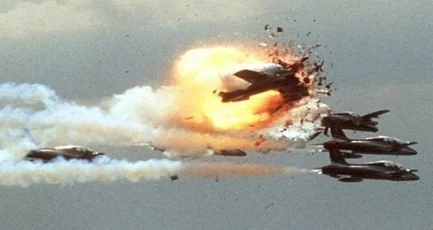
Three aircraft from the Italian Frecce Tricolori demonstration team collided during an air show at Ramstein Air Base in Germany. The wreckage fell into the crowd, killing 75 people and seriously injuring 346 others.
The tragedy led to major changes in air show safety regulations and crowd protection measures worldwide. Aviation authorities implemented stricter guidelines for aerobatic performances over populated areas.
1993 – Tajikistan Aviation Disaster
A Tajikistan Airlines Yakovlev Yak-40 crashed during takeoff from Khorog Airport, killing all 82 people aboard. The accident highlighted safety concerns in post-Soviet aviation infrastructure.
The crash prompted international aviation authorities to examine safety standards in former Soviet republics. Many airlines received assistance upgrading equipment and training programs to meet international safety standards.
1901 – Silliman University Founded

Silliman University was established in the Philippines as the first American private educational institution in the country. The university introduced American educational methods and English language instruction.
The institution became a model for other American educational ventures in the Philippines during the colonial period. Silliman’s founding marked the beginning of American cultural influence in Philippine higher education.
Sports and Recreation on August 28
1971 – Janet Evans Born

American swimmer Janet Evans was born in Fullerton, California. Her exceptional swimming abilities would make her one of the most dominant distance swimmers in Olympic history.
Evans set multiple world records and won five Olympic medals during her career. Her achievements inspired a generation of young swimmers and elevated the profile of women’s competitive swimming.
1950 – Ron Guidry Born

American baseball player Ron Guidry was born in Lafayette, Louisiana. His pitching career with the New York Yankees would establish him as one of the franchise’s greatest left-handed pitchers.
Guidry’s 1978 season included a 25-3 record and Cy Young Award victory. His nickname “Louisiana Lightning” reflected his devastating slider and competitive spirit on the mound.
1943 – Lou Piniella Born

American baseball player and manager Lou Piniella was born in Tampa, Florida. His playing career with the New York Yankees evolved into successful managerial positions with multiple teams.
Piniella’s fiery temperament and baseball knowledge made him an effective leader and strategist. His managerial career included World Series championships and numerous playoff appearances.
1989 – Valtteri Bottas Born

Finnish race car driver Valtteri Bottas was born in Nastola, Finland. His Formula One career would include victories and championship contention with the Mercedes team.
Bottas became Finland’s most successful Formula One driver since Mika Häkkinen. His technical precision and speed made him a formidable competitor on the world’s most challenging racing circuits.
Notable Births on August 28
1904 – John Betjeman Born
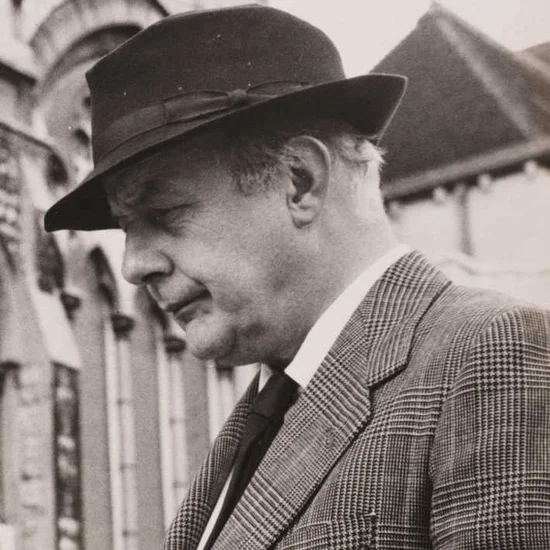
English poet and academic John Betjeman was born in Highgate, London. His accessible verse and architectural preservation efforts would make him one of Britain’s most beloved literary figures.
Betjeman served as Poet Laureate from 1972 until his death in 1984. His poetry celebrated English suburban life and Victorian architecture while advocating for historical preservation.
1910 – Tjalling Koopmans Born
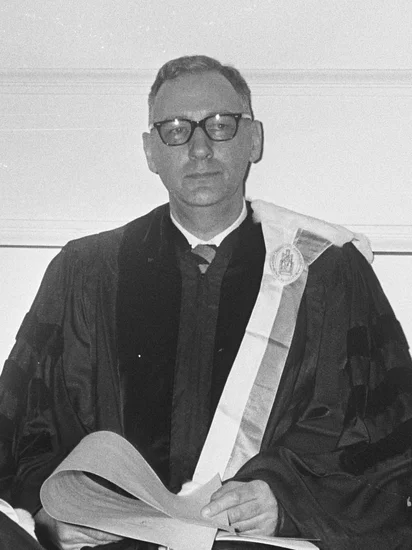
Dutch-American mathematician and economist Tjalling Koopmans was born in Graveland, Netherlands. His groundbreaking work in economic theory would earn him the Nobel Prize in Economics.
Koopmans developed activity analysis and optimal allocation theory, revolutionizing mathematical economics. His contributions to economic modeling influenced generations of economists and policy makers.
1916 – Jack Kirby Born
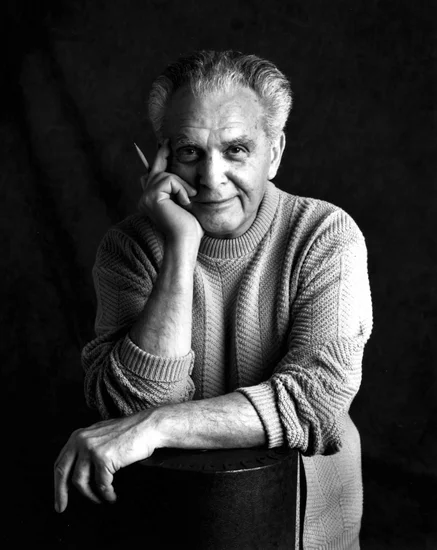
American comic book artist Jack Kirby was born in New York City. His dynamic artwork and creative storytelling would revolutionize the comic book industry and popular culture.
Kirby co-created iconic characters including Captain America, the X-Men, and the Fantastic Four. His distinctive artistic style influenced countless artists and established the visual language of superhero comics.
1925 – Donald O’Connor Born

American actor, singer, and dancer Donald O’Connor was born in Chicago, Illinois. His performances in Hollywood musicals would make him one of the entertainment industry’s most versatile performers.
O’Connor’s role in “Singin’ in the Rain” showcased his extraordinary dancing abilities and comedic timing. His athletic dance sequences and charming personality made him a beloved film musical star.
1928 – Vilayat Khan Born
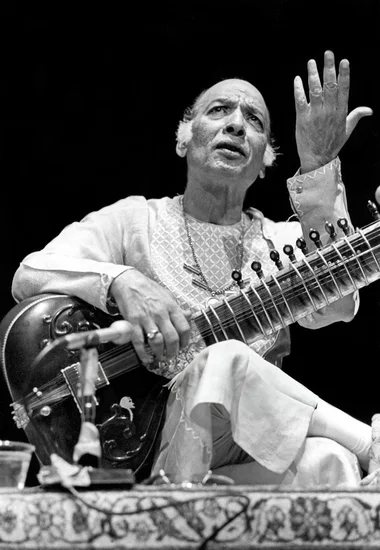
Indian sitar player and composer Vilayat Khan was born in Gouripur, British India. His innovative playing techniques would revolutionize Indian classical music and inspire musicians worldwide.
Khan developed the gayaki ang style, bringing vocal techniques to instrumental sitar performance. His musical innovations influenced both traditional Indian music and Western musicians exploring Eastern musical traditions.
1958 – Scott Hamilton Born

American figure skater Scott Hamilton was born in Toledo, Ohio. His competitive skating career would include Olympic gold medals and multiple world championships.
Hamilton’s athletic achievements and charismatic personality made him a popular figure skating commentator and performer. His battle with cancer inspired many people and demonstrated remarkable personal courage.
Notable Deaths on August 28
1955 – Emmett Till Murdered
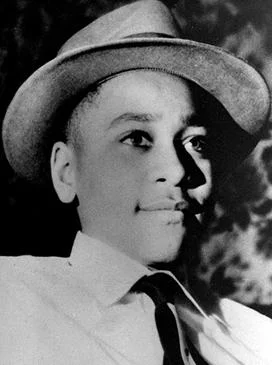
Fourteen-year-old African American Emmett Till was brutally murdered in Mississippi after allegedly whistling at a white woman. His death became a catalyst for the civil rights movement.
Till’s mother’s decision to hold an open-casket funeral exposed the horror of racial violence to the world. The tragedy mobilized civil rights activists and demonstrated the urgent need for federal intervention.
1972 – Prince William of Gloucester Dies
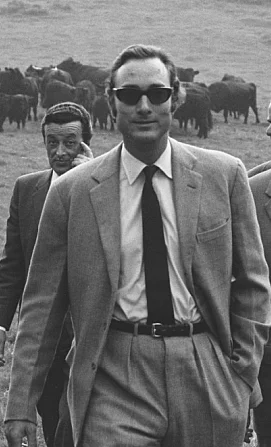
Prince William of Gloucester died in a plane crash while participating in an air race. The ninth in line to the British throne was known for his adventurous spirit and public service.
Prince William’s death shocked the royal family and the British public. His promising diplomatic career and charitable work were cut short by the tragic aviation accident.
1987 – John Huston Dies

Irish-American film director John Huston died in Middletown, Rhode Island. His influential filmmaking career spanned over four decades and produced numerous cinematic masterpieces.
Huston directed classics including “The Maltese Falcon,” “The Treasure of the Sierra Madre,” and “The African Queen.” His adventurous lifestyle and distinctive directorial style influenced generations of filmmakers.
2020 – Chadwick Boseman Dies
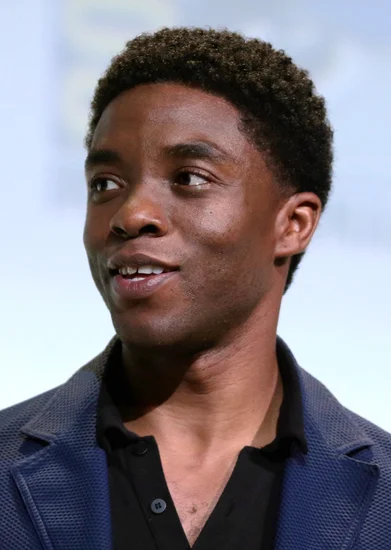
American actor Chadwick Boseman died from colon cancer at age 43. His portrayal of Black Panther made him a cultural icon and inspiration to millions worldwide.
Boseman’s death shocked the entertainment industry and fans globally, as he had kept his cancer diagnosis private. His legacy continues through his powerful performances and representation of African American excellence.
1975 – Fritz Wotruba Dies
Austrian sculptor Fritz Wotruba died in Vienna, Austria. His modernist sculptures and architectural designs significantly influenced 20th-century Austrian art and architecture.
Wotruba’s monumental stone sculptures combined traditional craftsmanship with modernist aesthetics. His work bridges the gap between classical sculpture and contemporary artistic expression.
1985 – Ruth Gordon Dies
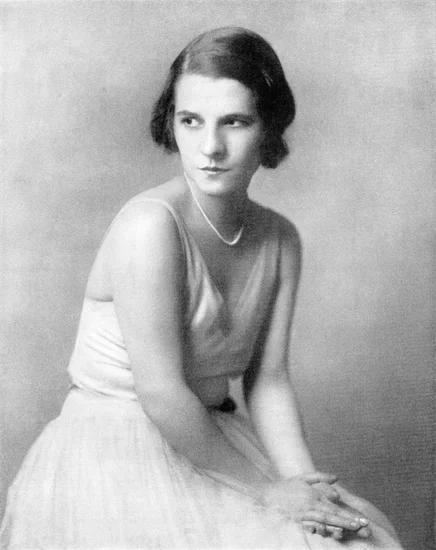
American actress and screenwriter Ruth Gordon died in Edgartown, Massachusetts. Her career spanned theater, film, and television, earning her an Academy Award for screenwriting.
Gordon’s performances in “Harold and Maude” and “Rosemary’s Baby” showcased her versatility as an actress. Her screenwriting partnership with Garson Kanin produced several successful Broadway comedies.
Holidays and Observances on August 28
Christian Feast Days
The Christian calendar commemorates several saints on August 28, including Augustine of Hippo, one of the most influential theologians in Christian history. Augustine’s writings shaped Western Christianity and philosophical thought.
Alexander of Constantinople and Moses the Black are also honored on this date. Their lives represent the diversity of early Christian leadership and the spread of Christianity across different cultures.
National Grandparents Day in Mexico
Mexico celebrates National Grandparents Day on August 28, honoring the important role of grandparents in family life and society. The observance recognizes their wisdom, experience, and contributions to family traditions.
Mexican families gather to celebrate their elders through special meals, gifts, and quality time together. The holiday emphasizes the cultural value placed on respecting and caring for older generations.
Eastern Orthodox Liturgical Calendar
The Eastern Orthodox Church observes specific liturgical readings and commemorations on August 28. These observances connect contemporary believers with centuries of Christian tradition and spiritual practice.
Orthodox communities worldwide participate in special services and prayers designated for this date. The liturgical calendar provides structure and meaning to the spiritual lives of Orthodox Christians.
